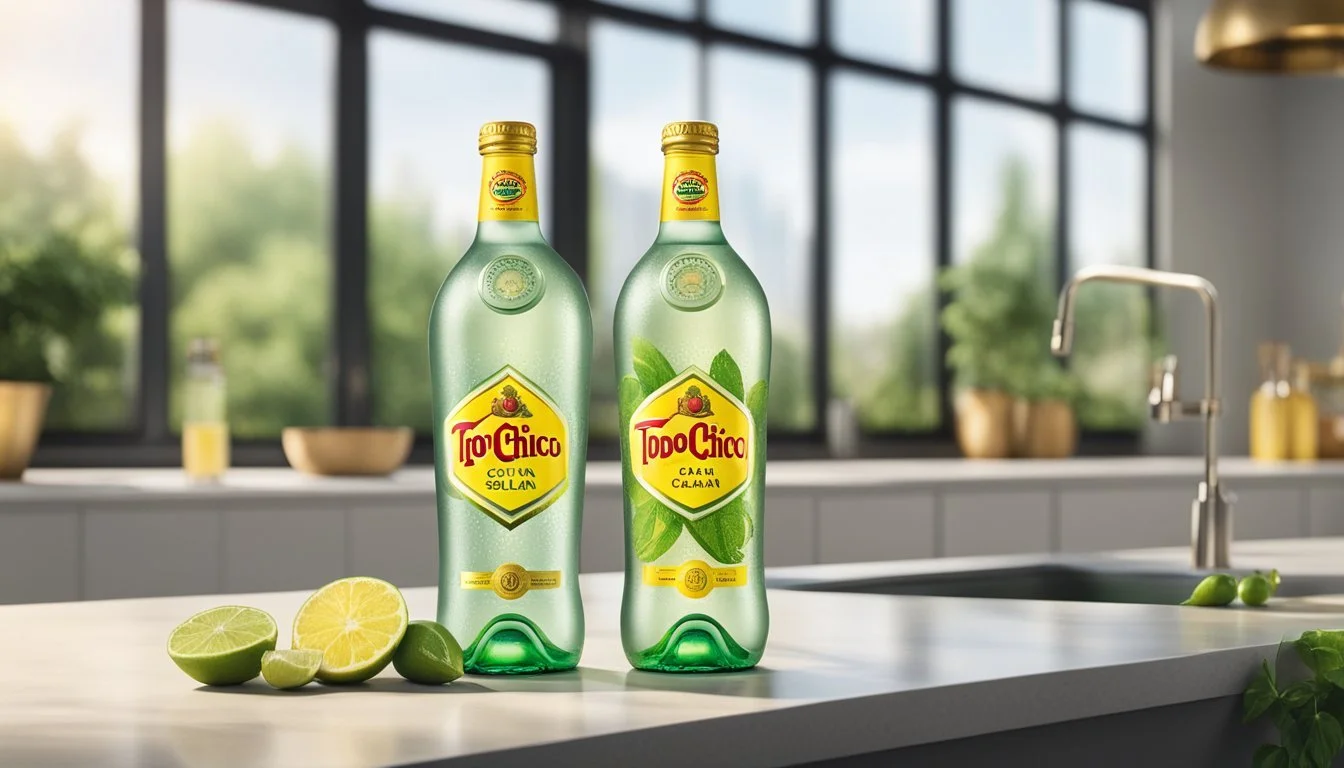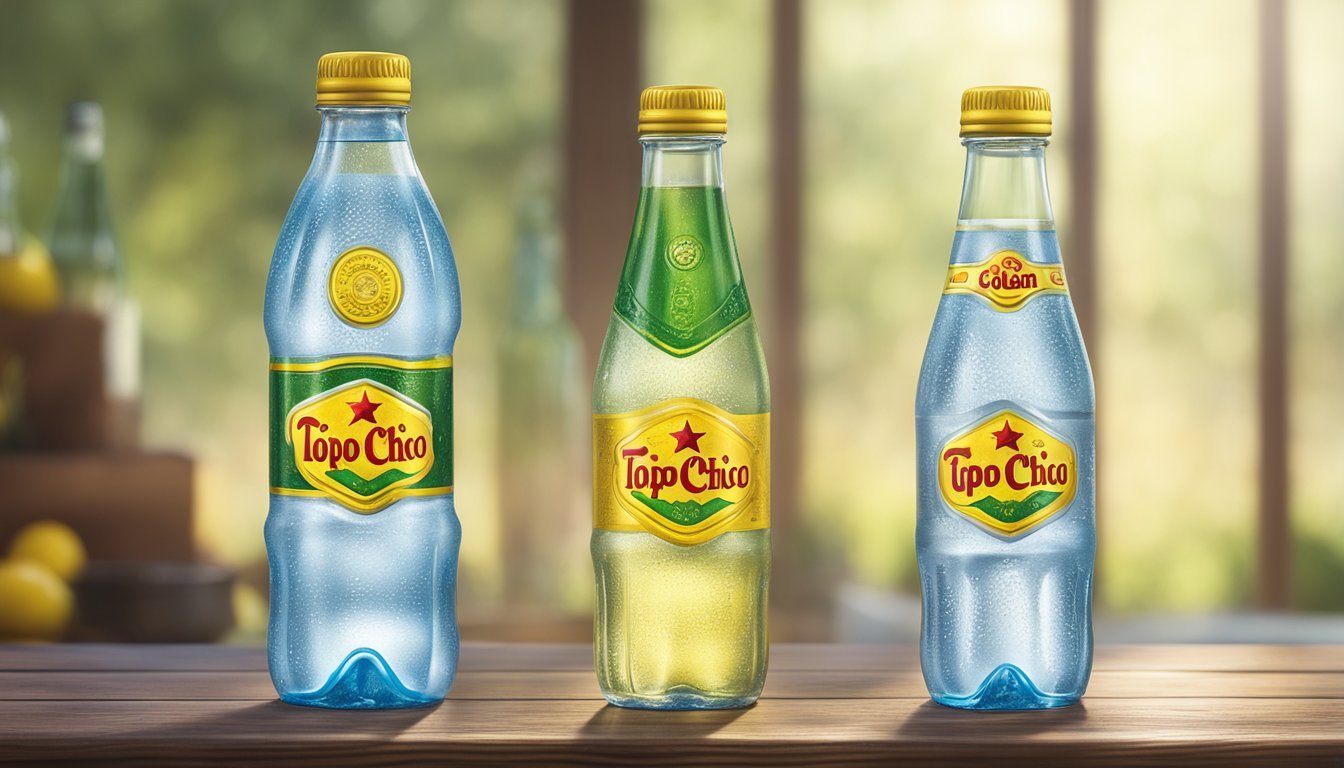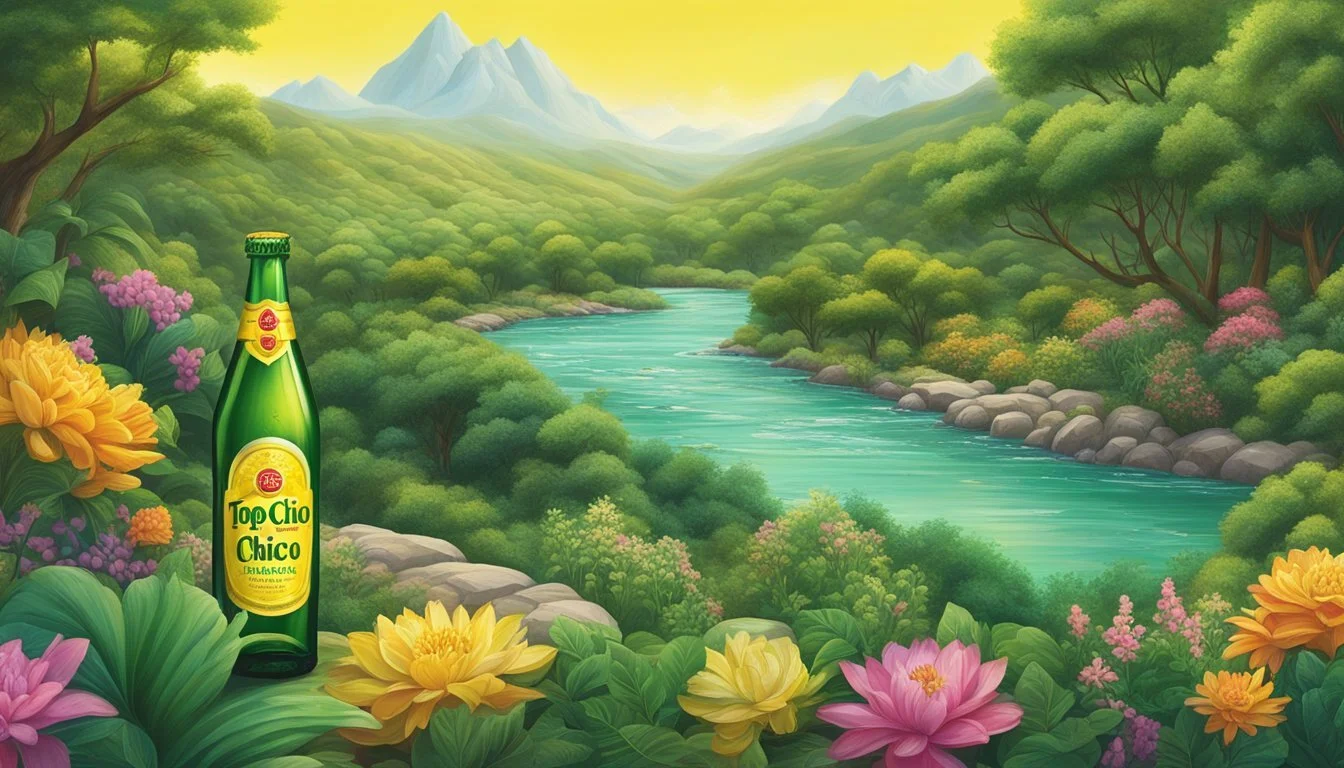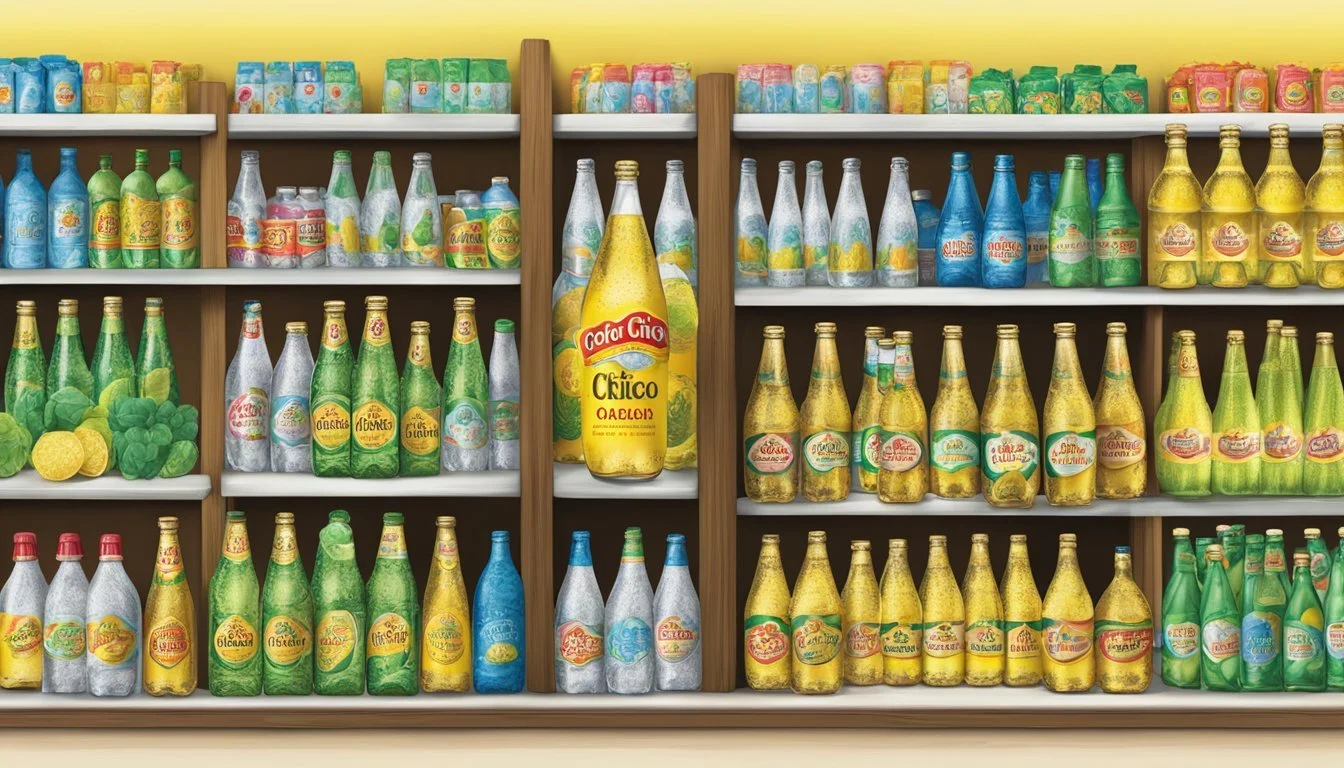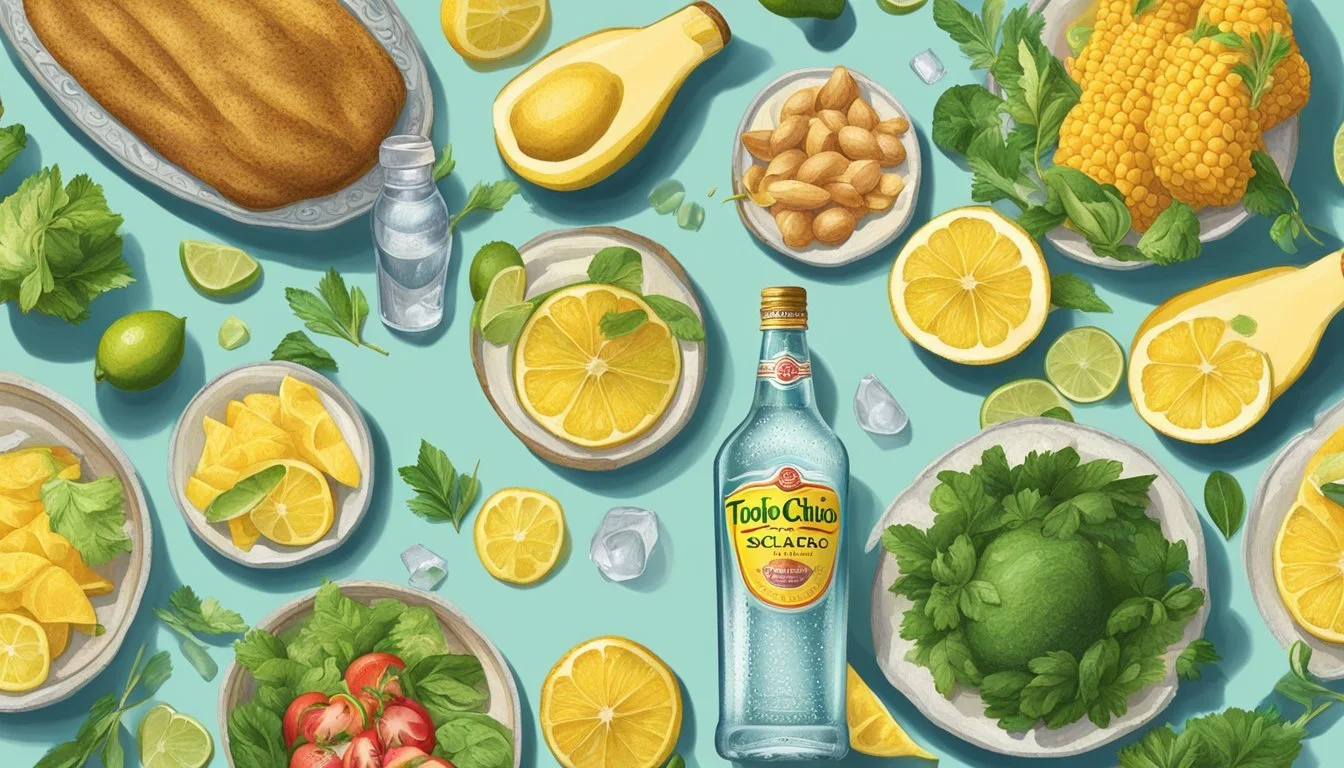Topo Chico vs. Solán de Cabras
Comparing Premium Bottled Waters
When it comes to premium bottled water, two brands often stand out: Topo Chico and Solán de Cabras. Topo Chico, sourced from the Cerro del Topo Chico spring in Monterrey, Mexico, has been offering its effervescent mineral water since 1895. In contrast, Solán de Cabras boasts a legacy spanning over 3,600 years, drawing from Spain's Serranía de Cuenca.
Both waters have garnered loyal followings due to their distinct mineral compositions and historical significance. While Topo Chico is celebrated for its lively carbonation and refreshing taste, Solán de Cabras is often praised for its reputed healing properties and smooth texture. The decision between the two may come down to personal preference in flavor and values related to their sourcing methods.
Ultimately, the choice of which bottled water is better hinges on individual taste and what characteristics a drinker values most in their hydration experience. This comparison will explore these nuances to help readers make a more informed decision.
Historical Background
Topo Chico and Solán de Cabras, two prominent names in the premium bottled water segment, have rich and unique histories. These origins provide insight into how each brand has attained its prestigious status in the market.
The Origin of Topo Chico
Topo Chico's history dates back to 1895 in Monterrey, Mexico. It was established by Mexican entrepreneur Vitaliano Paez, who recognized the potential of the mineral-rich spring at the Cerro del Topo Chico site. This spring has been legendary for centuries, believed to possess healing properties.
By the 1920s, Topo Chico's popularity surged, making it a household name across Mexico. The brand's growth gained international attention, and its effervescent bubbles became a key selling point. In 2017, Coca-Cola acquired Topo Chico, expanding its reach to global markets and solidifying its presence as a leading sparkling mineral water brand.
Solán de Cabras: A Spanish Legacy
Solán de Cabras originates from the ancient springs in the Serranía de Cuenca, near Beteta, Spain. Its history spans over 3,600 years, making it one of the oldest mineral water sources still in use today. The Romans were among the first to recognize its purity and therapeutic benefits.
The water's pristine quality has been preserved throughout centuries, maintaining a reputation for health benefits. Solán de Cabras draws its water from a single, protected spring, ensuring consistent mineral composition. This historical legacy has cemented its place as a premium bottled water, admired for both its heritage and quality.
Health and Hydration
Topo Chico and Solán de Cabras are prominent bottled water brands known for their unique mineral content and potential health benefits. This section compares their mineral composition and health impacts to help you make an informed choice.
The Essence of Mineral Water
Topo Chico and Solán de Cabras are both valued for their mineral content. Topo Chico originates from a limestone-rich spring near Cerro del Topo Chico and is known for its mineral-rich profile. Solán de Cabras, on the other hand, hails from Spain and features a balanced composition of calcium, magnesium, and potassium.
Topo Chico:
Calcium: About 15 mg/L
Magnesium: Around 4 mg/L
Potassium: Less than 1 mg/L
Solán de Cabras:
Calcium: Approximately 28 mg/L
Magnesium: About 10 mg/L
Potassium: Roughly 3 mg/L
These minerals play vital roles in bodily functions such as muscle contraction, nerve function, and hydration. The balance of these elements makes both brands popular among health-conscious consumers.
Health Benefits and Risks
Both Topo Chico and Solán de Cabras offer hydration benefits thanks to their mineral content. Solán de Cabras is often praised for its gentle mineral composition, which may be ideal for daily consumption and aiding in digestive health. The presence of electrolytes like calcium and magnesium supports bone health and muscle function.
Topo Chico also contributes beneficial minerals; however, concerns have been raised regarding its contamination with PFAS (per- and polyfluoroalkyl substances), which have been linked to health risks such as cancer and thyroid disruption. Until these issues are addressed, consumers might prefer brands with negligible PFAS levels.
In summary, while both bottled waters offer health benefits via essential minerals, consumers should consider potential contaminants like PFAS in their decision-making process.
Physical Properties and Quality
Topo Chico and Solán de Cabras offer distinct physical properties and quality that cater to various preferences. Each brand's carbonation, mineral composition, and purification process contribute to their unique characteristics.
Understanding Carbonation
Topo Chico is renowned for its high level of carbonation, giving it a crisp and refreshing taste. The intense bubbles provide a sparkling experience that many find invigorating. The carbonation level is achieved through a natural process as the water is sourced from Monterrey, Mexico.
Solán de Cabras, on the other hand, is typically available as still water. This brand is favored for its smooth and mild texture. The absence of carbonation allows the natural flavors and minerals to stand out more clearly. Sourced from a spring in Spain, Solán de Cabras is bottled at the source, preserving its purity.
Bottled Water Quality Assessment
Mineral composition plays a critical role in the quality of bottled water. Topo Chico contains a mix of minerals like calcium, magnesium, and sodium, which enhance its taste and provide minor health benefits. Despite its appealing properties, Consumer Reports highlighted concerns with PFAS levels in Topo Chico, urging consumers to consider alternatives until the issue is resolved.
Solán de Cabras water is celebrated for its balanced mineral content and low sodium levels. This ensures a clean and refreshing taste without overwhelming the palate. The water undergoes minimal processing, preserving its natural qualities. Bottled in high-quality glass bottles, Solán de Cabras maintains the integrity of the water's flavor and purity.
Overall, these brands exemplify different approaches to bottled water, from sparkling to still, each with its strengths and considerations.
Tasting Notes
Topo Chico and Solán de Cabras offer distinct tasting experiences. Each exhibits unique flavor profiles and nuanced characteristics appreciated by water sommeliers.
Flavor Profiles
Topo Chico is known for its crisp, clean taste with a pronounced mineral flavor. It offers a natural effervescence with balanced carbonation. The variety of flavors, such as Twist of Lime and Twist of Grapefruit, add subtle hints without overpowering the palate. These natural flavors gently enhance the mineral water's refreshing qualities.
By contrast, Solán de Cabras has a smooth, neutral taste with a slightly sweet aftertaste. Its softness on the palate and balance of minerals contribute to its reputation as a premium bottled water. The absence of carbonation highlights its pure and delicate flavor.
The Water Sommelier's Perspective
Water sommeliers emphasize Topo Chico's naturally carbonated profile. The bubbles, fine yet vibrant, elevate the tasting experience. The mineral-rich composition adds a distinct, savory nuance, making it a preferred choice for pairing with food.
In comparison, Solán de Cabras is often appreciated for its gentle mineral content and smooth texture. Its subtle sweetness and pure flavor profile make it ideal for those seeking a mellow, refined drinking experience. The lack of carbonation allows the natural qualities of the water to shine through, appealing to aficionados of still water.
These differing attributes showcase the unique characteristics each brand brings to the table. Each water offers an exemplary taste experience aligned with its natural and mineral-rich origins.
Environmental Impact and Sustainability
Both Topo Chico and Solán de Cabras have made strides in reducing their environmental footprints through various initiatives aimed at sustainability and conservation.
Packaging and Recycling
Topo Chico primarily uses glass bottles for its products, which are more environmentally friendly compared to plastic. Glass bottles are highly recyclable and reduce plastic waste. Coca-Cola, which owns Topo Chico, has committed to improving its packaging sustainability by increasing the use of recycled materials.
Solán de Cabras also utilizes glass bottles extensively, emphasizing their long-term sustainability. Their packaging has received awards for innovation and environmental sustainability. The company focuses on reducing waste through the adoption of recyclable materials and minimizing its carbon footprint during production.
Water Source Conservation
The natural spring source of Solán de Cabras in Spain has been preserved for over 3,600 years. The company emphasizes maintaining the purity and natural state of this water source. They implement stringent measures to avoid contamination and ensure sustainable water extraction to protect the environment.
Topo Chico sources its mineral water from a spring in Mexico. Recently, Coca-Cola has made efforts to reduce PFAS levels in Topo Chico, addressing concerns about water purity. Conservation of the water source is critical, and the company is working to ensure sustainable water practices are maintained.
Both brands aim to ensure that their water sources remain unpolluted and sustainably managed, reflecting their commitment to the environment and natural resources.
Market Presence and Consumer Choice
Topo Chico and Solán de Cabras cater to different market segments while maintaining strong brand recognition. This section will explore their growth and consumer preferences.
Brand Recognition and Growth
Topo Chico, now owned by Coca-Cola, enjoys significant market presence in the USA. Recently, the brand made headlines by reducing the levels of harmful chemicals in its products, which likely contributed to increased consumer confidence.
Solán de Cabras, sourced from Spain, positions itself as a premium choice. It’s frequently compared to other high-end brands like Evian, Voss, and Fiji. Although less widespread in American markets, it boasts a loyal customer base and is often sold at a higher price point.
Both brands leverage social media to amplify their presence, but their approaches differ. Topo Chico’s vibrant and youthful branding contrasts with Solán de Cabras’ emphasis on purity and natural origins.
Consumer Preferences
Consumers appreciate Topo Chico for its refreshing taste and unique mineral composition. It's also used as a mixer for cocktails, adding to its versatility. Reviews on platforms like Amazon highlight its crispness and effervescence.
Solán de Cabras appeals to those seeking high-quality, premium water. Its distinct blue bottle and reputation for purity make it a favorite among health-conscious buyers. The brand is often chosen for its luxurious image and the perceived health benefits of its spring water source.
While both brands have their loyalists, the choice often boils down to price sensitivity and brand perception. Some consumers opt for affordability and accessibility with brands like Aquafina and Dasani, while others invest in the premium allure of brands like Solán de Cabras and Acqua Panna.
Culinary Applications
Topo Chico and Solán de Cabras bring unique qualities to culinary activities. They offer distinct tastes and characteristics, making them suitable for various recipes and cocktails.
Cocktails and Mixology
Topo Chico is a favorite in mixology due to its crispness and high carbonation. It's often used in classic cocktails like Ranch Water, which combines Tequila, Topo Chico, and a twist of lime. The effervescence enhances the flavor profile and makes it a vibrant base for cocktails.
For those seeking a sugar-free option, Topo Chico provides the necessary bite without added sweetness. Lime juice pairs exceptionally well with its minerality, making it a versatile ingredient. Add a twist of grapefruit for variation and complexity in drinks.
Solán de Cabras, on the other hand, is prized for its purity and smooth texture. It can serve as a refined mixer in high-end cocktails, providing a clear backdrop that doesn’t overpower other flavors. It’s perfect for subtler drinks where water quality significantly impacts the final taste. Premium cocktails can be accentuated with a splash of Solán de Cabras to maintain flavor integrity.
Cooking with Mineral Water
In the kitchen, Topo Chico's carbonation can be utilized in cooking to enhance textures. It can be added to batters for fritters or tempura, creating a lighter, fluffier result. The bubbles expand when heated, providing a delicate and crispy texture that can't be achieved with plain water.
Solán de Cabras, known for its natural purity, is suitable for dishes where water quality is paramount. It's excellent for boiling delicate ingredients like poached fish or preparing broths. The clean taste ensures that the primary flavors of the dish remain unadulterated, making Solán de Cabras a valuable asset in high-precision culinary applications.
Legal and Health Regulations
When evaluating bottled water like Topo Chico and Solán de Cabras, it's essential to consider the legal regulations and health guidelines surrounding their production and distribution. This section will cover water quality standards and consumer safety guidelines.
Understanding Water Standards
Water standards are established to ensure that bottled water is safe for consumption. Both Topo Chico and Solán de Cabras must comply with regulations set by organizations such as the U.S. Environmental Protection Agency (EPA) and the European Union (EU). These organizations control the permissible levels of contaminants, including heavy metals, bacteria, and Per- and Polyfluoroalkyl Substances (PFAS).
Topo Chico faced scrutiny in 2020 for having high levels of PFAS. Subsequent tests revealed that Coca-Cola, Topo Chico's parent company, reduced PFAS levels by over 50%. Despite these improvements, the presence of any PFAS remains a concern, given their potential health risks.
Solán de Cabras touts its purity, deriving water from a protected natural spring. Regular testing ensures it meets stringent EU standards, known for their strict control over contaminants. Compliance with these standards minimizes health risks and maintains consumer trust.
Consumer Safety Guidelines
Consumers should be aware of safety guidelines when choosing bottled water. Labels must disclose critical information, including the source, mineral content, and any treatment processes. This transparency allows consumers to make informed decisions.
Topo Chico has encountered legal action, including a class-action lawsuit, due to high PFAS levels. The issue stressed the importance of ongoing testing and regulatory compliance. Low levels of PFAS are crucial as these chemicals can accumulate in the body over time, posing long-term health risks.
Solán de Cabras promotes its water as free from harmful contaminants. Regular audits and certifications guarantee that the water's quality remains high. This practice not only assures safety but also reinforces the brand's commitment to health and wellbeing.
Ensuring that bottled water adheres to legal and health guidelines protects consumers from potential health hazards. Drinking water, whether from Topo Chico or Solán de Cabras, must meet rigorous standards to ensure it is safe and beneficial for health.
More About Topo Chico
More About Solán de Cabras
Acqua Pana vs Solan de Cabras: Which Bottled Water is Better?
Antipodes vs Solan de Cabras: Which Bottled Water is Better?
Aqua Carpatica vs Solan de Cabras: Which Bottled Water is Better?
Arrowhead vs Solan de Cabras: Which Bottled Water is Better?
Boxed Water vs Solan de Cabras: Which Bottled Water is Better?
Castle Rock vs Solan de Cabras: Which Bottled Water is Better?
Core Hydration vs Solan de Cabras: Which Bottled Water is Better?
Deer Park vs Solan de Cabras: Which Bottled Water is Better?
Hawaiian Springs vs Solan de Cabras: Which Bottled Water is Better?
Ice Mountain vs Solan de Cabras: Which Bottled Water is Better?
Icelandic Glacial vs Solan de Cabras: Which Bottled Water is Better?
Just Water vs Solan de Cabras: Which Bottled Water is Better?
Mountain Valley Spring Water vs Solan de Cabras: Which Bottled Water is Better?
Nestle Pure Life vs Solan de Cabras: Which Bottled Water is Better?
Poland Spring vs Solan de Cabras: Which Bottled Water is Better?
San Pellegrino vs Solan de Cabras: Which Bottled Water is Better?
Smartwater vs Solan de Cabras: Which Bottled Water is Better?
Solan de Cabras vs 1907water: Which Bottled Water is Better?
Solan de Cabras vs Alkaline88: Which Bottled Water is Better?
Solan de Cabras vs Big Chill: Which Bottled Water is Better?
Solan de Cabras vs BodyArmor: Which Bottled Water is Better?
Solan de Cabras vs Cascade Mountain: Which Bottled Water is Better?
Solan de Cabras vs CBD Living: Which Bottled Water is Better?
Solan de Cabras vs Crystal Geyser: Which Bottled Water is Better?
Solan de Cabras vs Crystal Lake: Which Bottled Water is Better?
Solan de Cabras vs Essence pH10: Which Bottled Water is Better?
Solan de Cabras vs Hawaii Volcanic: Which Bottled Water is Better?
Solan de Cabras vs Kirkland Signature: Which Bottled Water is Better?
Solan de Cabras vs Liquid Death: Which Bottled Water is Better?
Solan de Cabras vs Open Water: Which Bottled Water is Better?
Solan de Cabras vs Proud Source: Which Bottled Water is Better?
Solan de Cabras vs Pure Life: Which Bottled Water is Better?
Solan de Cabras vs Purely Sedona: Which Bottled Water is Better?
Solan de Cabras vs Richard's Rainwater: Which Bottled Water is Better?
Solan de Cabras vs Simple Truth: Which Bottled Water is Better?
Solan de Cabras vs Talking Rain AQA: Which Bottled Water is Better?
Solan de Cabras vs Weird Water: Which Bottled Water is Better?
Solan de Cabras vs Whole Foods 365: Which Bottled Water is Better?
Solan de Cabras vs Whole Foods Italian Still Mineral water: Which Bottled Water is Better?
Zephyrhills vs Solan de Cabras: Which Bottled Water is Better?


